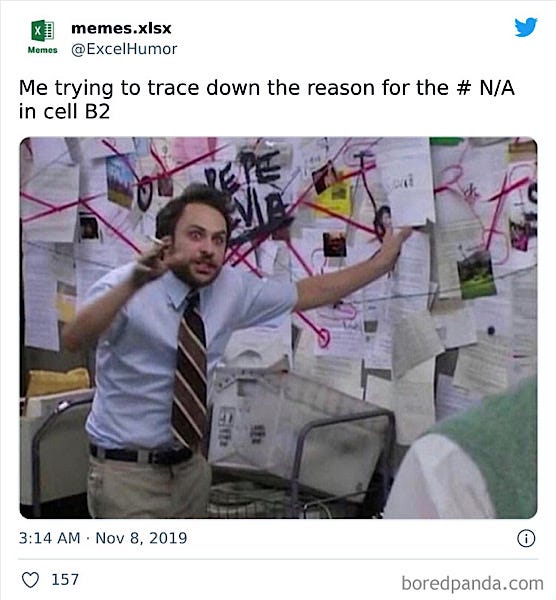Patchwork #5. Excel, LLMs, turbocapitalismo y otras fuentes de ansiedad
Hola pataliebres,
Benvinguts a Patchwork #5. A mi me ha pillado en el 56 Sitges Festival Internacional de Cinema Fantàstic de Catalunya pero para fantasía y terror... ¡Excel!
Si no pueden tener Excel, que les quiten el Excel
Excel Recruitment Time Bomb Makes Top Trainee Doctors 'Unappointable': una liada parda con Excel en la selección de anestesistas in the UK. Proceso opaco, faltas de estandarización, VLOOKUPs...
A tope con democratizar, las bajas barreras de acceso, que las más de las veces lo único que necesitas es una tabla pivot y que a Steve Jobs le puto flipaban, por algo será. PERO, cercano a lo que dice Esther Perel: 🦜 Our cultural ideals are sometimes too impatient with our human insecurities. Está bien tener una herramienta con mucha flexibilidad y accesible, pero no lo está tanto el que no tenga guardarrailes (Clippy, tiiiiio), que no es particularmente fácil de debuggear (también por el uso que le damos: ojalá a la gente le diera más por poner nombres a las celdas), o mezclar prototipado (esto ok) con que la gente se venga arriba y eso se convierta en uso productivo.
Como dice Charles Wheelan en 📖 Naked Statistics de la estadística (pero que aplica perfectamente aquí):
Statistics is like a high-caliber weapon: helpful when used correctly and potentially disastrous in the wrong hands. (p. xiv)
Y estos errores no son los peores, porque son tan escandalosos que no pasan desapercibidos. El problema son los que no son tan escandalosos. Pero vamos, podría ser peor, podríamos hacer aplicaciones en torno a hojas de Excel. Toda esta historia daría para un megapost, pero entre tanto, mi esperanza ahí son los LLMs.
Data freak zone: LLMs & time series forecasting
Tranquilos, no voy a ser la típica newsletter que siga la locura de los Large Language Models (porque es imposible). Pero me han dado en la fibra como antiguo friki/traumado del Forecasting. Esta semana han aparecido como setas en los principales curadores de contenido: TimeGPT, Large Language Models Are Zero-Shot Time Series Forecasters. ¿Será mejor que cascarse un Prophet? (Lo dudo, porque explica tú luego porque vas a vender menos lechugas en Febrero). No he buceado todavía porque no tengo excusa y uno tiene que priorizar en la Infoxication.
En cualquier caso, ninios, por favor, no os dediquéis nunca a hacer forecasts.
Many years ago, when I was young, I got promoted into a job that involved sales forecasting. When I told a friend of mine about it, his reply was, “ Gee, that’s too bad. What did you do wrong? ”
De hecho, no trabajéis en Data. Bueno, no trabajéis en general.
Sí que hay bullshit jobs
Y hablando de trabajo, vamos con la dosis anti-turbocapitalista de la newsletter: Why Do So Many People Think They Are in a Bullshit Job. Parece ser que la hipótesis de David Graeber en 📖 Bullshit Jobs era cierta:
Published in one of the British Sociological Association’s journals – Work, Employment and Society – in July, now another study has come along and it suggests that, although factors such as alienation are important, there really do seem to be certain occupations that people report being more useless than others and, what’s more, they align with the categories of bullshit jobs that Graeber proposed. (View Highlight)
¿Que no sabes lo que es un bullshit job? No hace falta Graeber, léeme a mi: ✍️ Déjame sin trabajo, por favor.
Otras maneras de sentir ansiedad
Me he quedado loco con las respuestas a Data Analyst a Bad Choice for Someone With Social Anxiety en Reddit:
I have massive social anxiety and being a data analyst has been fantastic. I spend most of my days not having to talk to a single soul (View Highlight)
Hija mía, por supuesto que es un bad choice y no me puedo creer que las respuestas vayan en esta línea: literalmente el trabajo va de hablar (como eufemismo de presionar) a gente para aclarar qué decisiones se van a tomar en función de los resultados del análisis, definiciones hasta la extenuación, aclaraciones...
Por otro lado, una manera de llevar la ansiedad vital es el productivity porn. A través de la newsletter de Eleanor Konik(que escribía la genial Obsidian Roundup) llego a este test de la SuperPop de Todoist muy graciosito: What is your productivity tool?
Multimedia de la semana
Por fin me he terminado el The Practice of Management de Peter Drucker. Ahora a ver quién resume esto, porque tiene para todos, qué barbaridad. Fijaos lo que dice de lo que eran "nuevas herramientas" en su tiempo. ¿Os aventuráis a decir de qué estaba hablando? Los LLMs encajan como un guante aquí:
[These tools] cannot help in defining what the problem is. They cannot determine what is the right question (...) they cannot by themselves make a decision effective. Yet these are the most important phases in decision-making (...). But the new tools can be of great help in the two middle stages: analyzing the problem and developing alternatives. (...) The new tools are also not without danger. In fact, unless properly used they can become potent means for making the wrong decisions. (...) Precisely because they make possible concrete and specific analysis of problems which hitherto could only be roughly defined or sensed, the new tools can be abused to “solve” the problems of one small area or of one function at the expense of other areas or functions or of the entire business. They can be abused, as the technician calls it, to “sub-optimize.”
Directamente del festival de Sitges, os recomiendo 🎬 Concrete Utopia:
Lo que sería la peli favorita de Jorge Dioni López (📖 La España de las piscinas): hay un cataclismo y se desarrolla una sociedad en torno a un bloque de pisos... Pero se lía respecto a "los outsiders":

